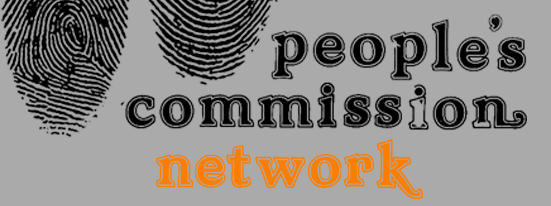Mohammed Zeki Mahjoub
Interview with Mahjoub
Listen to an interview with Mahjoub!
Toronto man seeks freedom after eleven years of arbitrary, indefinite detention
Toronto man seeks freedom after eleven years of arbitrary, indefinite detention
Toronto, 5 December 2011 -- Mohammad Mahjoub, a father of two, is in court this week to ask for his freedom after eleven and a half years of arbitrary, indefinite detention in Toronto. Hearings will continue this afternoon and tomorrow with the cross-examination of an anonymous CSIS witness testifying from behind a curtain.
Mr. Mahjoub has been in prison or under house arrest since June 2000 pending the outcome of security certificate proceedings against him. The security certificate regime, part of immigration law, has been widely criticized as an instrument of racial profiling and for its use of secret, unsourced information to detain and deport people to situations where they would be at risk of torture or even death. In February 2007, the Supreme Court struck down security certificate legislation as unconstitutional, but, a year later, the government brought in a new law, almost identical to the first.
Although he has never been charged with any offence in Canada, Mr. Mahjoub currently lives under suffocating, invasive house arrest conditions that seek to micro-manage every aspect of his private life and have a significant impact on his morale and well-being. His lawyers are arguing that the conditions are disproportionate and irrational. Submissions made to the Federal Court state that the "psychological implications of the constant surveillance of the Applicant harkens to the most dictatorial examples of cruel and unusual treatment of persons under oppressive regimes, through the Stasi, Gestapo, Mukhabarat and others."
Moreover, as Mr. Mahjoub's lawyers will show in court, there are, in the first place, no legal grounds for continuing to impose conditions on Mr. Mahjoub.
"CSIS itself is no longer even attempting to claim that there are reasonable grounds to believe that Mr. Mahjoub is a threat. Instead the spy agency makes thoroughly unconvincing and unsubstantiated claims about Mr. Mahjoub's 'likely mindset' and the 'possibility' that he 'may' reconnect with alleged associates in the future. We're in real trouble if this is accepted as grounds to deprive someone of their liberty."
Criminologist Stéphane Leman-Langlois, a professor at the Université Laval, analysed CSIS's assessment of Mr. Mahjoub and concluded, "Overall, the information submitted is vague, weak and shows an extremely low risk of terrorist or “subversive” activities.”
A secret government memo made public on Saturday by Post Media casts further doubt on the credibility of the information used against Mr. Mahjoub and the morality of CSIS practices. In the January 2008 memo, CSIS informed Stockwell Day, then Minister of Public Safety, and the former Deputy Minister of Immigration Richard Fadden (now Director of CSIS), that the cases against Mr. Mahjoub and other security certificate detainees would fall apart if information obtained from torture were excluded.
Parallel to the detention review, Mr. Mahjoub is asking the court to halt all proceedings against him on the basis of a series of legal abuses. A June 2010 Federal Court ruling found that the case against Mr. Mahjoub was based on information obtained through the use of torture. In addition, there have been repeated breaches of solicitor-client privilege by CSIS and the Canadian Border Services Agency (CBSA), most recently the seizure of all of Mr. Mahjoub's legal preparation materials.
Mr. Mahjoub was first arrested in June 2000 after an immigration security certificate was issued against him; he was released under house arrest in 2007, returned to prison in March 2009, and released again under house arrest following a court order in January 2010.
Two other men - Mahmoud Jaballah in Toronto and Mohamed Harkat in Ottawa - remain under house arrest pending the final outcome of their security certificates proceedings. Hassan Almrei, from Toronto, and Adil Charkaoui, from Montreal, were cleared in 2009 and are currently using legal action to try to hold the government accountable for their ordeals.
-30-
Contact:
justiceformahjoub@gmail.com

The People's Commission Network is a working group of QPIRG-Concordia qpirgconcordia.org 514.848.7585 info@qpirgconcordia.org

Contact the People's Commission Network: QPIRG Concordia - Peoples's Commission Network c/o Concordia University 1455 de Maisonneuve Ouest Montreal, QC, H3G 1M8 commissionpopulaire@gmail.com
This website is based on the Fluid 960 Grid System




